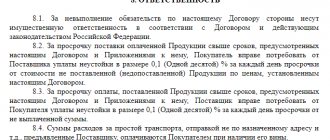Legal capacity and capacity
Full capacity:
- occurs with the onset of adulthood, i.e. upon reaching the age of eighteen
- acquired by minors from the time of marriage
Limited capacity:
- established by the court in relation to adult citizens who abuse alcoholic beverages or drugs
Partial capacity:
- minors aged 14 to 18 years
- minors aged 6 to 14 years
Absolute incapacity:
- established by the court in relation to adult citizens who, due to a mental health disorder, cannot understand the meaning of their actions or manage them
Civil law also connects the recognition of a minor as fully capable with other circumstances. Thus, a minor who has reached the age of sixteen can be declared fully capable if he works under an employment contract, contract or, with the consent of his parents (adoptive parents, guardian), is engaged in entrepreneurial activity.
In addition to the full legal capacity of citizens, the law distinguishes between partial and limited legal capacity .
The legal capacity varies - up to the age of fourteen. They can carry out small household transactions. The law allows them to dispose of funds provided by a legal representative or a third party for a specific purpose or free disposal. Other transactions for minors are made by parents, adoptive parents or guardians. They bear responsibility for the minor’s transactions in full, and are also responsible for damage caused by the minor.
Minors aged from fifteen to eighteen years have the right to independently manage their earnings, scholarships, and other income, exercise the rights of the author of works of literature, science, art, invention or other result of their activities protected by law, in accordance with the law, make deposits in credit institutions and dispose of them , make small household transactions (buy everyday goods, food). They must make other transactions with the consent of their parents, adoptive parents, and guardian.
Upon reaching sixteen years of age, minors may be members and founders of cooperative and public organizations (if this is provided for by their charters or law).
Minors between the ages of fourteen and eighteen are liable for property damage caused by their actions. However, if they have no property or income, then the damage is compensated by the parents or persons replacing them.
With sufficient grounds, the court, at the request of interested persons, may limit or deprive a minor of the right to independently dispose of his earnings, scholarship or other income. The reason for this may be unreasonable use of one’s funds, drunkenness, etc.
The legal capacity of adult citizens can be limited only by law. For example, the legal capacity of persons who abuse alcoholic beverages or narcotic substances is limited in court, which puts their family in a difficult financial situation. Guardianship is established over them.
A citizen who, due to a mental health disorder, is unable to understand the meaning of his actions or manage them, may be declared incompetent by the court. Guardianship is established over him. On behalf of a citizen recognized as incompetent, transactions are carried out by a guardian.
INDIVIDUALS AS SUBJECTS OF CIVIL LAW
The concept of “individual” is generic; depending on the legal connection with the Russian Federation, citizens of the Russian Federation, foreign citizens and stateless persons are distinguished; belonging to these categories is reflected in the civil legal status of the person.
The bearer of rights, duties and responsibilities is usually a person with legal personality. In relation to individuals, the components of legal personality (right and legal capacity) must be distinguished, because not everyone can personally exercise rights, acquire duties, or bear responsibility.
The legal capacity of individuals is determined by clause 1 of Art. 17 of the Civil Code of the Russian Federation as the ability to have civil rights and bear responsibilities. This is the opportunity to have any civil right or obligation from among those provided for or permitted by law. In contrast to subjective law, legal capacity is a preliminary legal condition for the materialization of subjective law.
The acquisition of specific subjective civil rights and their possession is the result of the implementation of legal capacity. The meaning of legal capacity: only with its presence is it possible for specific subjective rights and obligations to arise.
Legal capacity and legal capacity have common guarantees of their reality. Restriction of both the right and legal capacity is possible only in cases and in the manner established by federal law - and only to the extent necessary to protect the foundations of the constitutional system, morality, health, rights and legitimate interests of other persons, ensuring the country's defense and security state (part 3 of article 55 of the Constitution, paragraph 1 of article 22, article 1 of the Civil Code).
An act of a state or other body that violates the procedure for limiting the legal capacity of citizens and their right to engage in entrepreneurial and other activities is invalid. A citizen’s refusal of rights and legal capacity and other transactions aimed at limiting them are recognized as null and void (not entailing legal consequences).
Difference. Legal capacity reflects a person’s ability to be a subject of a civil partnership, and legal capacity means the implementation of this opportunity by specific legally significant actions. Legal capacity presupposes the presence of legal capacity, but legal capacity does not always “develop” into legal capacity. Legal capacity is a permanent “legal measure” of a citizen, and legal capacity is specifically temporary, depending on a number of objective and subjective factors, since the scope of legal capacity is established (i.e., expanded and narrowed) by the legislator.
Principles of legal capacity:
1) is common and equal (clause 1 of Article 17: legal capacity is equally recognized for all citizens
2) the inadmissibility of restricting civil legal capacity, except in cases provided for by law (clause 1 of Article 22).
3) the nullity of an individual’s refusal of civil legal capacity (clause 3 of Article 22)..
Emancipation
A minor who has reached the age of sixteen may be declared fully capable if he works under an employment contract, including a contract, or, with the consent of his parents, adoptive parents or guardian, is engaged in entrepreneurial activity.
A minor is declared fully capable (emancipation) by decision of the guardianship and trusteeship authority - with the consent of both parents, adoptive parents or trustee, or in the absence of such consent - by a court decision.
Parents, adoptive parents and guardians are not liable for the obligations of an emancipated minor, in particular for obligations arising as a result of harm caused to them.
A minor declared emancipated has full civil rights and bears civil responsibilities, with the exception of those rights and responsibilities for the acquisition of which an age limit is established by federal legislation (for example, according to the law “On Weapons”, military duties, etc.)
The Civil Code does not provide for the possibility of cancellation or deprivation of emancipation.
Legal capacity of minors
For minors under fourteen years of age (minors), transactions, with the exception of those indicated below, can be made on their behalf only by their parents, adoptive parents or guardians.
The rules provided for in paragraphs 2 and 3 of Article 37 of the Civil Code apply to transactions of legal representatives of a minor with his property. The guardian does not have the right, without the prior permission of the guardianship and trusteeship body, to carry out, and the trustee - to give consent to, transactions involving the alienation, including the exchange or donation of the ward's property, leasing it, for free use or as a pledge, transactions entailing renunciation of the rights belonging to the ward, division of his property or allocation of shares from it, as well as any other transactions entailing a decrease in the property of the ward.
The procedure for managing the property of a ward is determined by law.
Currently, the Rules for the management of the property of minor wards, storage and alienation of this property, approved by the Ministry of Education of the RSFSR on October 30, 1969, are in force.
The guardian, trustee, their spouses and close relatives do not have the right to enter into transactions with the ward, with the exception of the transfer of property to the ward as a gift or for free use, as well as to represent the ward when concluding transactions or conducting legal cases between the ward and the spouse of the guardian or trustee and their relatives relatives. Minors aged six to fourteen years have the right to independently:
1) small household transactions;
2) transactions aimed at obtaining benefits free of charge, which do not require notarization or state registration;
3) transactions for the disposal of funds provided by a legal representative or with the consent of the latter by a third party for a specific purpose or for free disposal.
Property liability for transactions of a minor, including transactions made by him independently, is borne by his parents, adoptive parents or guardians, unless they prove that the obligation was violated through no fault of theirs. These persons, in accordance with the law, are also responsible for damage caused by minors.
Recognition of a citizen as incompetent
A citizen who, due to a mental disorder, cannot understand the meaning of his actions or manage them, may be declared incompetent by the court in the manner established by civil procedural legislation.
Guardianship is established over him. On behalf of a citizen declared incompetent, transactions are carried out by his guardian.
If the grounds on which the citizen was declared incompetent no longer exist, the court recognizes him as legally competent. Based on a court decision, the guardianship established over him is canceled.
In accordance with Part 3 of Art. 5 of the Law of the Russian Federation “On psychiatric care and guarantees of the rights of citizens during its provision”, restriction of the rights and freedoms of persons suffering from mental disorders only on the basis of a psychiatric diagnosis, facts of being under dispensary observation in a psychiatric hospital or in a psychoneurological institution for social security or special training is not allowed. Officials guilty of such violations are liable in accordance with the legislation of the Russian Federation. The conclusion of a doctor of another specialty on the state of mental health of a person is preliminary in nature and is not the basis for resolving the issue of limiting his rights and legitimate interests, as well as for providing him with the benefits provided by law for persons suffering from mental disorders (Part 3 of Article 20 of the said Law). Recognition of a citizen as incompetent is carried out only in court, which is a guarantee of the protection of his rights.
The case of recognition as incompetent is considered by the court with the obligatory participation of the prosecutor and a representative of the guardianship and trusteeship authority. If it is necessary and possible to be present for health reasons, this citizen is also called to the court hearing.
The court makes a decision to declare a citizen incompetent on the basis of a forensic psychiatric examination. In turn, a court decision declaring him incompetent is the basis for appointing guardianship over this citizen.









